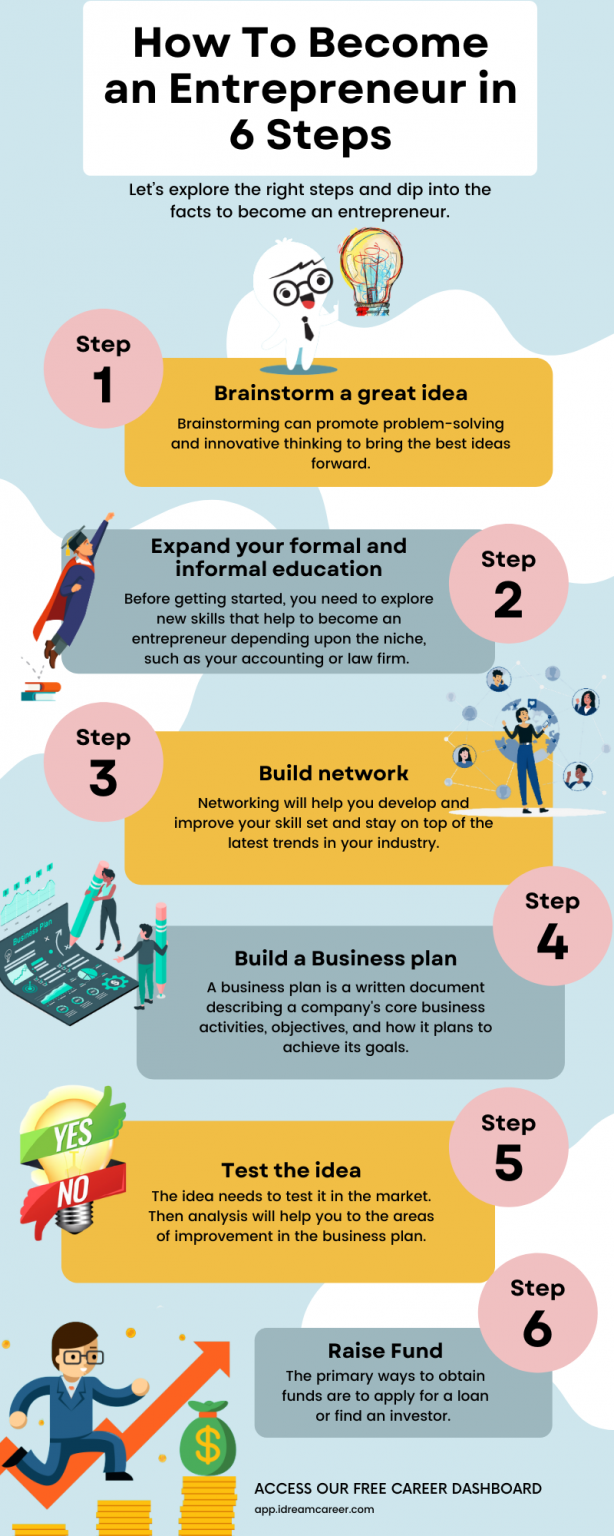What Do You Need To Do To Be An Entrepreneur

The allure of charting one's own course, building a business from the ground up, and achieving financial independence fuels the dreams of countless individuals. However, the path to entrepreneurship is rarely a smooth ascent. It demands more than just a good idea; it requires a specific skillset, unwavering dedication, and a willingness to navigate inevitable challenges.
This article delves into the essential elements needed to succeed as an entrepreneur. It examines the core competencies, financial considerations, and strategic planning necessary to turn a vision into a thriving business, drawing on insights from leading business schools, seasoned entrepreneurs, and economic data.
Cultivating Essential Skills and Mindset
Entrepreneurship begins with an idea, but its survival hinges on execution. Developing a robust skillset is paramount.
Resilience is perhaps the most crucial attribute. Failure is almost inevitable, and the ability to learn from setbacks and persevere is vital. According to a 2023 report by the Small Business Administration (SBA), approximately 20% of new businesses fail within the first year, highlighting the importance of adaptability.
Strong communication and leadership skills are equally important. Entrepreneurs must effectively articulate their vision to investors, employees, and customers.
Effective leadership inspires and motivates a team to work towards a common goal. Furthermore, financial literacy cannot be overstated. Understanding financial statements, managing cash flow, and making informed investment decisions are essential for long-term sustainability.
Strategic Planning and Market Analysis
A solid business plan is the cornerstone of any successful venture. It serves as a roadmap, outlining the business's goals, strategies, and financial projections.
Thorough market research is crucial. Entrepreneurs need to identify their target market, assess the competition, and understand the industry landscape. This involves analyzing market trends, customer needs, and potential risks.
A well-defined value proposition is critical. What unique benefit does the business offer that differentiates it from competitors? This must be clearly articulated and consistently delivered to customers.
According to Harvard Business School, companies with a comprehensive business plan are significantly more likely to secure funding and achieve long-term success.
Financial Considerations and Funding Strategies
Securing adequate funding is often a major hurdle for aspiring entrepreneurs. There are various funding options available, each with its own advantages and disadvantages.
Bootstrapping, or self-funding, involves using personal savings and resources to launch the business. This allows for greater control but may limit growth potential.
Venture capital is a popular option for high-growth startups. Venture capitalists invest in exchange for equity in the company, providing significant capital but also relinquishing some control.
Angel investors are individuals who invest their own money in early-stage companies. They typically provide smaller amounts of funding than venture capitalists but can offer valuable mentorship and networking opportunities.
Small business loans from banks and credit unions are another common source of funding. These loans require a solid business plan and good credit history.
Crowdfunding platforms, such as Kickstarter and Indiegogo, allow entrepreneurs to raise funds from a large number of individuals.
Building a Strong Network and Seeking Mentorship
Entrepreneurship can be a lonely journey. Building a strong network of mentors, advisors, and fellow entrepreneurs can provide invaluable support and guidance.
Mentors can share their experiences, offer advice, and provide a sounding board for ideas. Joining industry associations and attending networking events can help entrepreneurs connect with potential mentors and advisors.
Surrounding oneself with a supportive network can help mitigate the psychological challenges of entrepreneurship. According to a study by the National Bureau of Economic Research, entrepreneurs who have strong social support networks are more likely to persevere through difficult times.
Legal and Regulatory Compliance
Navigating the legal and regulatory landscape is an essential aspect of entrepreneurship. Entrepreneurs must comply with all applicable laws and regulations, including business registration, tax requirements, and labor laws.
Consulting with legal and accounting professionals can help entrepreneurs avoid costly mistakes and ensure compliance. Failing to comply with regulations can result in fines, penalties, and even the closure of the business.
The Future of Entrepreneurship
The entrepreneurial landscape is constantly evolving, driven by technological advancements, changing consumer preferences, and global economic trends.
Adaptability and a willingness to embrace innovation are essential for long-term success. The rise of remote work, e-commerce, and social media has created new opportunities for entrepreneurs.
Sustainability and social impact are increasingly important considerations for consumers and investors. Businesses that prioritize these values are more likely to attract customers and secure funding.
Ultimately, successful entrepreneurship requires a combination of hard work, strategic planning, and unwavering determination. While the path may be challenging, the rewards of creating a thriving business and making a positive impact on the world can be immense. The entrepreneurial spirit continues to drive innovation and economic growth, shaping the future of our society.
















-jpg.jpeg)

